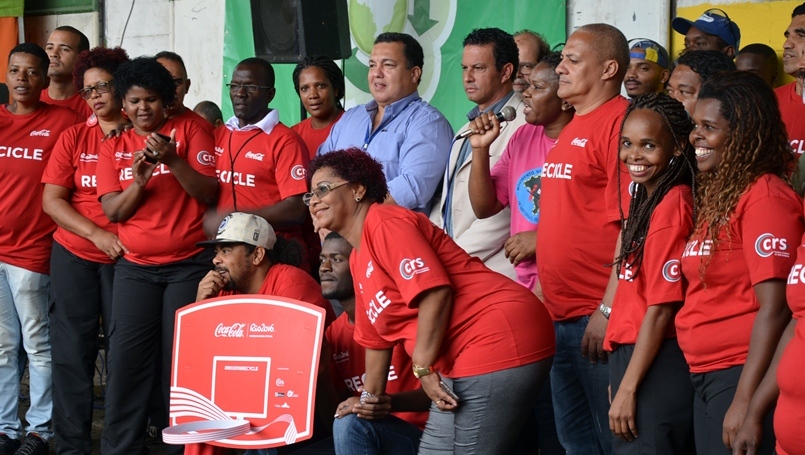Research shows that salespeople will never reach their performance potential without a well-defined sales-call procedure that they can follow and learn from. “Winging it” on sales calls has grim consequences – lost sales, extended sell cycles, margin erosion and no clear path to improvement. Bottom line: Your entire sales career can be mediocre if you “wing it.”
Performance improves by as much as 50% when salespeople have a consistent game plan for their sales calls.
Most salespeople make the same mistakes over and over without realizing it. Without a logical sales call plan to follow, they can’t even identify specific problems, let alone correct them. A good sales process mirrors the pattern by which customers make buying decisions.The nine acts of Cosine break a sales call into its most important components, sequenced in the order of the five key buying decisions every customer makes. By analyzing each segment of a call and testing against the customer’s buying decisions, salespeople can quickly recognize problems and adjust their behavior accordingly.
Without a system like Cosine, the only thing salespeople can look at is whether they won or lost the sale. If you don’t know what went wrong or why, you can’t improve your performance.
In The Field
A leading architectural services faced a common problem. They were having trouble trying to sell an intangible service that was seen more as a luxury than a necessity. The firm’s growth had stopped and they were losing business to far less capable competitors.
The Sales Board delivered a 2-day onsite Cosine sales training workshop for their sales staff, teaching the Cosine process and documenting the company’s Best Sales Practices. Twelve weeks of Skill Drill Modules followed, further honing the new selling skills the group had acquired.
Within only three months the CEO reported business grew by 20%. In addition, he said, “My sales team’s professionalism and sense of confidence increased as a direct result of the Action Selling program. Having a clear understanding of the selling strengths and weaknesses of each sales team member has made sales management both focused and effective for the first time.”
Common Cause Foundation looked at data for – and ranked – 88 countries. The highest score was found in Brazil, which achieved a CVS of 2.19. Norway followed (2.06), then Uruguay (2.02) and Canada (1.93). Spain, Finland, Argentina, Iceland, France and Great Britain make up the top 10.

Ed Mayo believes it is “fitting” that Brazil ranks as the most co-operative nation on Earth.
“The country has two and a half times as many member owners of co-ops than it does shareholders in listed firms,” he says.
“One of the most inspiring health co-operatives in the world, Unimed, is Brazilian. Its work to extend healthcare across the country is an emblematic example of enterprise and inclusion.”
Márcio Lopes de Freitas, president of OCB, Brazil’s national federation of co-ops, was “very proud” to learn of the results.
“The Brazilian population is open to co-operation due to its diversity – we believe that the co-operatives will be fundamental for the development of our economy,” he says.
“OCB is working hard to make our people aware of the co-operatives values, [but] as they are already present in our culture, co-operatives are also part of what we are.
“We also know that everything started with the first immigrants coming from Europe. Multicultural immigration was the base of population – our society was built by different people who chose Brazil and co-operated for a better future.”
Only one of the 88 countries – Rwanda – had a negative CVS (ie the average importance attached to achievement/power was greater than that attached to universalism/benevolence values), which Dr Crompton found surprising.
“In a world where public discourse – particularly from the media, business and politicians – is seemingly so dominated by values of wealth, power and public image, it is so easy to overestimate the importance that most people place on these values.”
But, he adds, studies have found that insecurity and threats to a person’s wellbeing tend to lead people to place greater importance on power and achievement values – and less importance on universalism and benevolence.
“It’s perhaps to be predicted, therefore, in countries where insecurity is likely to be higher – such as in Rwanda – that the Co-operative Value Score will be lower.”
Charles Gould, director general of the International Co-operative Alliance, highlights that countries like Brazil, Norway (2nd in the index), Spain (5th) and Finland (6th) have exceptionally strong co-operative business sectors.
“This is the first time that we have been able to compare co-operative values across countries, and to see the same countries come up is remarkable,” he says.
“Do they form co-operatives because these are the values of the country, or are the values of the country influenced by the kind of organisations it has? Like chicken and egg, it may be a bit of both over time.”

Tom Crompton hopes that the research means members of the co-operative movement will become more aware that their wider success will hinge on the values that they communicate and embody.
“The co-operative movement could play a crucial role in helping to convey a more authentic understanding of the importance that most people place on benevolence and universalism values,” he says.
“As a first step, co-operatives can begin to communicate as though their stakeholders – customers, staff, volunteers – attach particular priority to universalism and benevolence values. Doing so is likely to strengthen social norms around these values and embolden others to communicate in this way.
“I’d predict that this will strengthen public support for the work of co-operatives.”
1 July 2017 is the 95th annual International Day of Co-operatives, a global celebration of co-ops backed by the

United Nations.
“In recent years, we have seen efforts to link up co-operatives across the world, through the International Co-operative Alliance,” says Mr Mayo.
“The theme of the 2017 Day is, fittingly, inclusion – that no one is left behind. To achieve this theme across business and markets would go a long way towards achieving the Sustainable Development Goals set by the United Nations.
“We should recognise and celebrate the extent to which we live in a co-operative world. For a day, we can set aside competition, power and status and learn from that for every other day.”
Brazil
Brazil’s Unimed is the largest system of medical co-ops in the world, with over 113 hospitals, as well as emergency care, laboratories and ambulances.
Today, around 12% of Brazil’s population is a client of Unimed while the medical giant covers 83% of the national territory and accounts for 32% of the health insurance market. About a quarter of Brazilian doctors are members. It was also the official provider of emergency medical services at the 2014 World Cup, and one of the 14 officials sponsors of Brazil’s international football team. The World Cup was also an opportunity for Brazilian co-operatives to showcase their products – for example, Cocajupi (Central Cooperative of Cajucultores Piauí), a group of 450 co-operatives that produces cashew nuts, sold its products to host cities for the tournament.
And in 2016, waste picker co-operatives were in charge of not only collecting, but also recycling the waste generated during the Olympic games in Rio.

Rwanda
In early 2017, the Rwanda Cooperative Agency (RCA) announced plans to bring in external auditors and contracted staff to tackle embezzlement and improve management. Rwanda has more than 8,000 co-ops, made up of more than three million members – but it had been hard for RCA staff to reach every co-op in the country for monitoring and said it is also hard for co-ops to supervise themselves.
“We realised that funds of members are mismanaged by heads of co-operatives,” said RCA director general Apollo Munanura at the time. “However, change does not come at once and one has to plan and come up with solutions. We are moving towards transformational agenda.”
The country has recently seen craftswomen and farmers turn to co-operatives to help increase empowerment, food security and equality as the country rebuilds. Women-led co-ops help women financially – but women farmers in the region have also spoken out about the benefits of co-ops in family relationships. Hilaria Mujawamungu, president of the co-operative Hugukirwa Muko, said that instead of having to depend on their husbands, more women are “working together with our spouses to develop our households”.
Another co-operative, Twiyubake (which means “to rebuild ourselves” in the Kinyarwanda language), employs female genocide survivors as well as the wives of genocide perpetrators, to handmake and sell products using banana leaf and other fibres from the local area.
Source: www.thenews.coop



